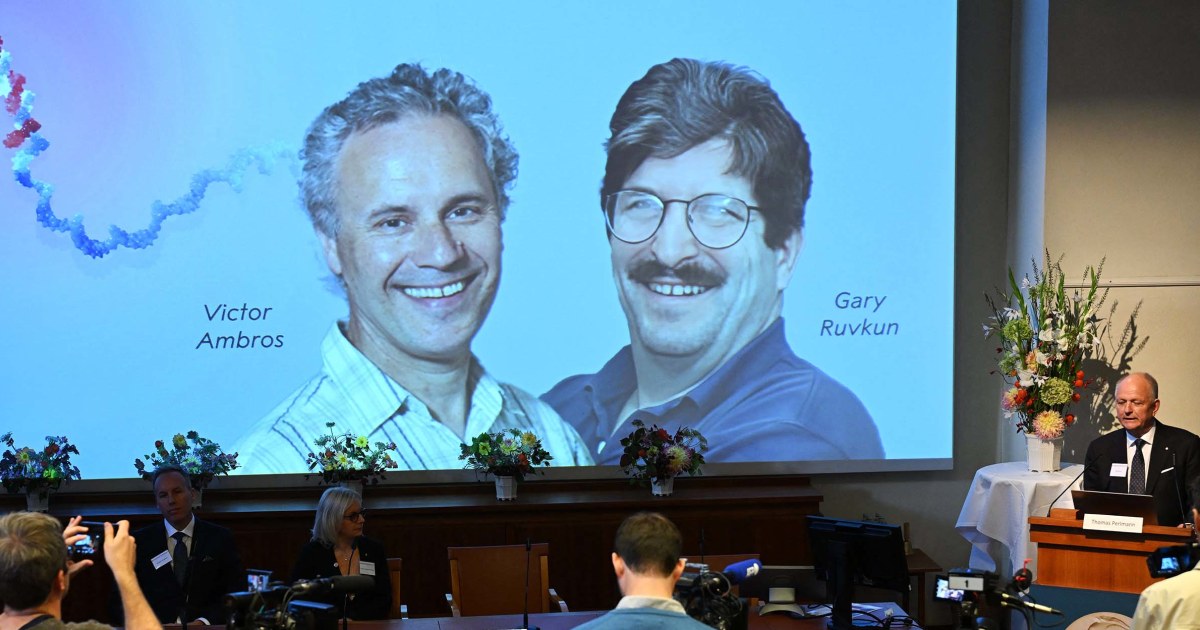Two American scientists were jointly awarded the Nobel Prize for medicine or physiology Monday for their ground-breaking work on how genes behave.
Victor Ambros and Gary Ruvkun discovered microRNA, which the Nobel Assembly describes as “a fundamental principle governing how gene activity is regulated.”
The tiny microRNA molecules play a crucial role in determining how different cells — which have the same chromosomes, essentially their instruction manual — have different characteristics.
The pair sought to explore how nerve cells and muscle cells, for example, have very different characteristics despite having the same genetic information.
“The answer lies in gene regulation, which allows each cell to select only the relevant instructions,” the Nobel announcement said. And the newly discovered microRNA is essential for all multicellular organisms to do this, including humans.
“Their surprising discovery revealed an entirely new dimension to gene regulation. MicroRNAs are proving to be fundamentally important for how organisms develop and function,” the Nobel committee said.
Working in the 1980s, Ambros and Ruvkun studied a 1mm roundworm, which contained many specialized cell types.
Although now seen as trailblazing, their published results were “initially met with almost deafening silence from the scientific community,” the Nobel announcement said, with many other scientists concluding it was not relevant to humans and complex animals.
But subsequent work, including the discovery of another microRNA in 2000, proved that there are more than a thousand genes for different microRNAs in humans.
Ambros, 70, born in Hanover, New Hampshire, gained his doctorate from the Massachusetts Institute of Technology in 1979 and is now the Silverman professor of natural science at the University of Massachusetts Medical School in Worcester.
Read the full article here
